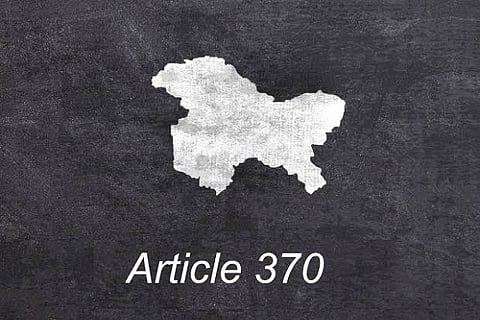
- News Updates
- PSU Watch
- Defence News
- Policy Watch
- हिन्दी न्यूज़
- Jobs Watch
- States News
- Event News

New Delhi: Before relaying the story, the man at the BPCL protest site at Jantar Mantar on November 28 repeats that it is not something that is meant to be shared with the media because it relates to Article 370. One of the responsibilities that comes with being a public sector undertaking (PSU) is that these companies also need to step into the role of confidantes and partakers in the government's plans and strategies. Some of these may be played out within the country, while others could be outside India, furthering the country's geopolitical goals. The gentleman changes his mind, noting that the times have changed. "Now that the government is going to privatise BPCL, these stories will have to be shared. Because they show that in certain areas, private sector will not be able to do what public sector companies do," he notes.
A day before D-day, it was raining heavily. A high-level meeting of senior officials of the three oil marketing companies (OMCs) had just been wrapped up. By evening, the source, a driver with BPCL, was called in by the management and asked to submit his mobile phone. From there on, he was not allowed to contact his family, friends or anyone else, because he was on a job assigned by the government that was to be carried out in utmost secrecy. So, he agreed. "After a high-level meeting of the senior bosses at BPCL, I was asked to take a lorry of fuel to Jammu depot. However, since it was raining heavily that night, I said that I will leave in the morning. Because it's not safe to drive while it was raining. The next morning, I left at 4 in the morning. I drove non-stop from Delhi to Jammu," said the driver.
After reaching Jammu, he realised that a lot of fuel was being transported to Jammu because there were five other lorries. "I think the fuel was sent not just by BPCL, but by the other two oil PSUs as well. Because there were a total of six lorries from four different locations that were sent to the Valley that day. Fuel could have been arranged from Jalandhar or Ambala, but to prevent raising eyebrows, all the lorries were sent from locations far away from Kashmir," the source says. The drivers were then asked to take the tankers to Srinagar, however, they could not do so because a different kind of permit is required to drive in the Valley, which they did not have. "So, from there, the fuel tankers were dispatched to Srinagar by private drivers," the man says.
"By the time, I was back in Delhi, we got to know that Article 370 has been removed. Friends and family did not have a clue about where we were for the two days preceding it. And I felt good about it. I felt that even if it was a small job, I had done it for my country," the man recalls. And then he goes on to ask, "Will a private sector company be able to do this? And will it be done with as much secrecy? The private sector can be called in to spur economic growth in times of crisis, it cannot be sent to the site of conflict to do what the government wants done." And then he merges among the many employees seated on the pavement to protest against privatisation of BPCL.
(PSU Watch– India's Business News centre that places the spotlight on PSUs, Bureaucracy, Defence and Public Policy is now on Telegram. Join PSU Watch Channel in your Telegram and stay updated)
